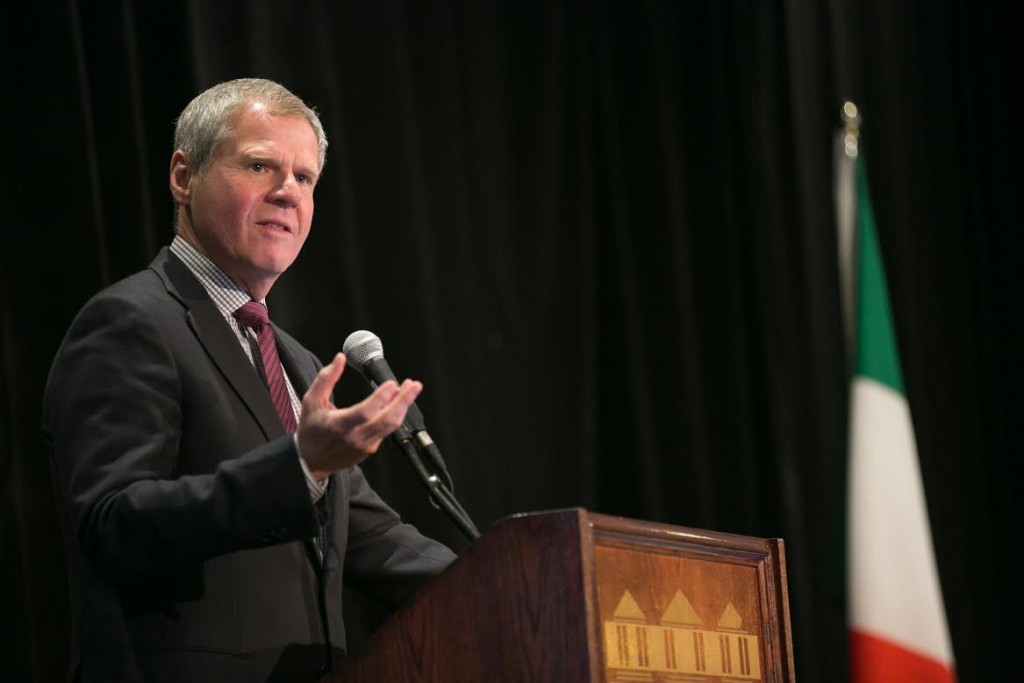Out of recession, but manufacturing still in doldrums

Jayson Myers, President and CEO of Canadian Manufactures and Exporters, represents over 50 associations in the manufacturing sector. © Donna Santos
News that Canada is out of a technical recession may have been a relief for some, but for Jayson Myers uncertainty remains.
“It’s a disappointing month for manufacturing,” said Myers, president and CEO of Canadian Manufacturers & Exporters, Canada’s largest trade and union association. He commented on the latest figures while boarding a plane from Ottawa to Toronto, where he will meet with the premier’s office and MPPs.
As the head of a group representing 50 associations and 5000 members in Canada’s manufacturing sector, Myers has a full schedule, especially when grappling with a continued downturn in his sector.
“I’m well past my 100,000 mile,” Myers said, referring to the demanding role he plays.
Manufacturing’s share of Canada’s Gross Domestic Product fell 0.6 per cent in September, despite favorable GDP growth in the third quarter of 2015.
The 2.3 per cent rise in real GDP from July to September reverses the two-quarters of negative growth, taking Canada out of a technical recession.
“September numbers gives us a bit of a reality check… Companies need to bring new products to market.” – Jayson Myers, president and CEO of Canadian Manufacturers & Exporters
But numbers released by Statistics Canada today show continued uncertainty in the manufacturing sector. Manufacturing output in September was $173.85 billion, a 0.9 per cent change from September 2014.
“We can’t look at one month as a trend,” Myers said. “But manufacturing across the country is facing challenges.”
While decline in the sector has significantly affected Saskatchewan and Alberta, a result of continued low commodity prices, Ontario and Quebec bore the brunt of September’s downturn.
“September numbers gives us a bit of a reality check that we can’t count on the US economy and the low dollar,” Myers said. “Companies need to bring new products to market.”
Myers’ day began at the Governor General’s forum on Syrian refugees in Ottawa. “It’s a challenge for all Canadians in how we successfully settle refugees,” he said. “Companies are crying out for practical and technical skills.”
But while there’s still uncertainty on how the resettlement will go and whether it will live up to its potential benefits, the increased involvement in climate change initiatives offers other possibilities.
In the shadow of climate change talks in Paris, Myers said he was optimistic new products brought about by the demands of being environmentally conscientious will boost the manufacturing sector.
“I’m really optimistic,” he said. “The government is focusing on innovation and driving economic growth.”
“The climate change agenda is a call for new technology in every sector, it will be manufacturing that drives that.”
